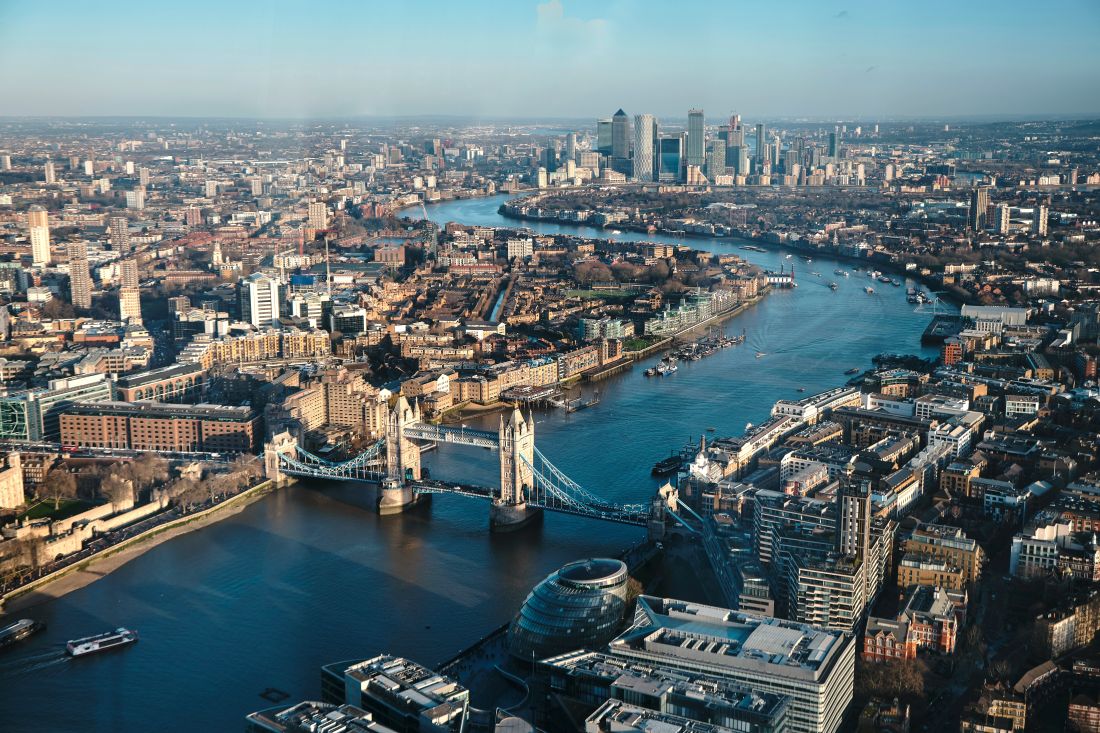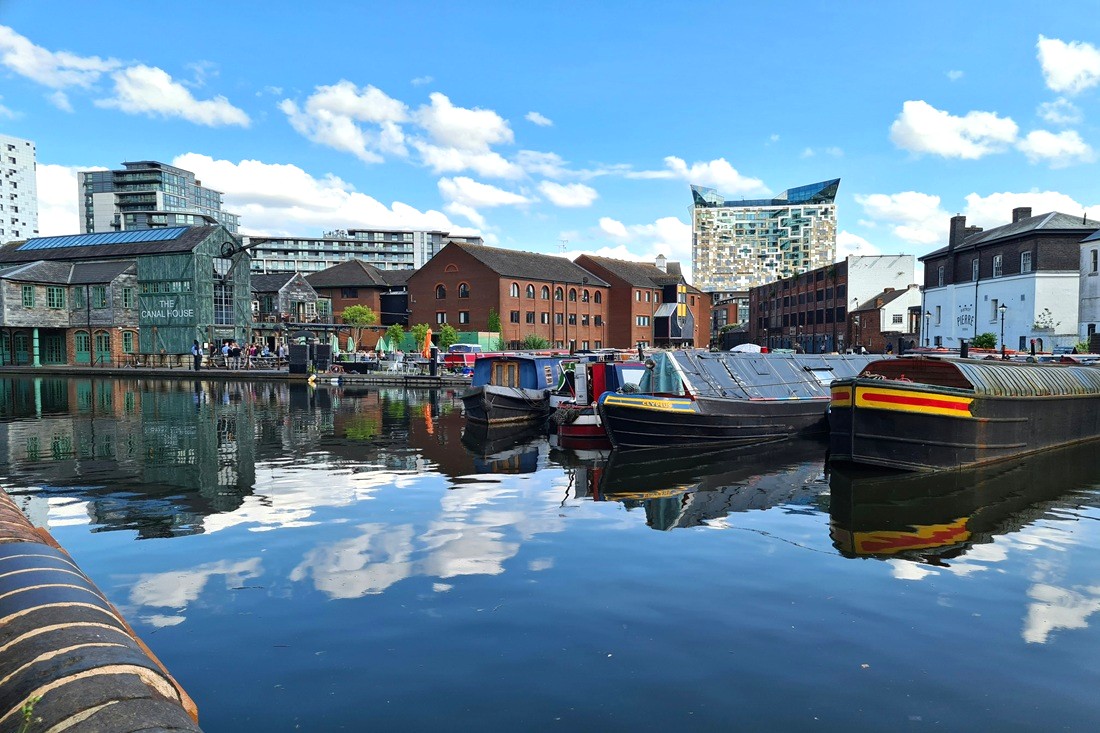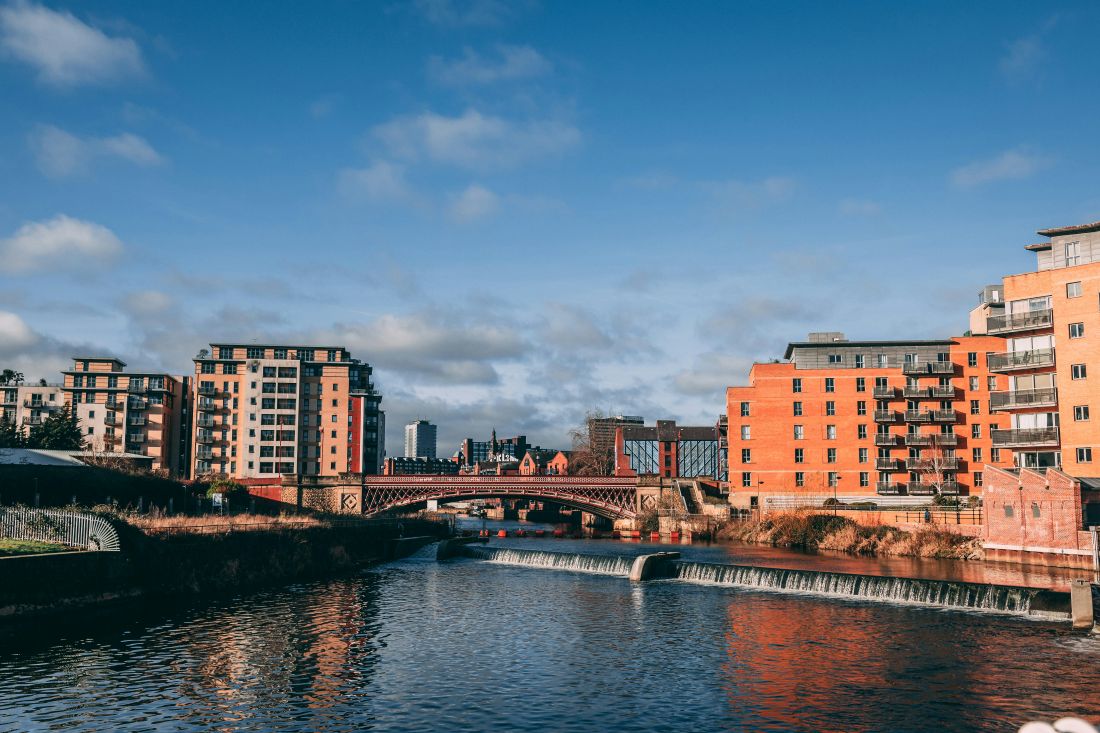Where is Office Space Demand Growing across the UK in 2025?
This article examines where office space demand has grown across the UK in 2025. It draws on market activity, operator data, and enquiry patterns to highlight the cities and regions with the most growth and the factors driving it. From the resilience of London’s prime office sector to the rise of regional business hubs, it considers how serviced office spaces and hybrid set-ups continue to shape the evolving market.
UK Market Overview
Before we explore individual cities, let's take a closer look at the UK market in general. Throughout 2025, the UK office market has shown signs of stabilisation. Following several years of post-pandemic adjustment, companies have established long-term hybrid working models focused on flexibility, cost, and sustainability. Many businesses are prioritising quality over space, choosing to relocate to better-connected, high-spec offices.

Across the UK, our data reveals enquiry levels are consistent or slightly higher than in 2024, with flexible and serviced workspaces leading demand. For example, we’ve found that take-up in London during the first half of 2025 was just over 7% higher than the long-term average. Other UK cities recorded activity levels around 8% above their 10-year averages, which demonstrates the market's gradual stabilisation.
Our research shows that activity has been concentrated in energy-efficient, amenity-rich buildings, as employers seek more sustainable environments to attract and retain talent.
Economic uncertainty and the increase in hybrid working have reinforced a more cost-conscious, quality-focused market. Many organisations have moved within the same city, in search of better ESG ratings and collaborative spaces.
As the UK market remains steady, attention turns to the regions where office space demand has shown the fastest growth in 2025.
London
London maintains its position as the most dynamic and competitive UK office market. In 2025, the West End, particularly Mayfair and Soho, has continued to attract creative and finance occupiers seeking premium serviced offices in London. Meanwhile, City Fringe locations such as Shoreditch and King’s Cross are benefiting from a strong demand in the tech and SME sectors.
Our research shows that Q1 2025 saw the highest level of new flexible space requirements since 2024. However, companies are taking longer to evaluate their options, with a quarter of occupiers comparing multiple London submarkets before committing.

Corporate leasing activity has returned to near pre-pandemic levels, with occupiers favouring serviced and managed offices that support hybrid working. We have seen a clear preference for well-equipped, ESG-aligned workspaces, prompting landlords to provide upgraded office spaces that meet BREEAM and WELL standards.
Our serviced office pricing tool tracks average monthly desk rates across private, serviced, and coworking offices throughout London and the UK. From our data, we have found that rents have stabilised, while incentives have eased due to the limited availability of prime spaces.
London’s premium and flexible office sectors lead the market in 2025. Roughly 100,000 sq. ft. of flexible workspace was renewed in the first half of 2025, highlighting steady demand and confidence in London’s flex market.
Manchester
Manchester has emerged as the leading regional office market in 2025, driven by tech, digital, and media firms expanding their footprints. Areas such as Spinningfields, Circle Square, and NOMA are seeing a particularly strong demand, with over 80% Grade A and flexible office space providers operating at near capacity.
The city’s appeal is reinforced by several major organisations, such as the BBC, ITV, PwC and Amazon, establishing a northern base in Manchester. This reflects the area’s skilled talent pool, excellent connectivity, and lower operating costs in comparison to London. Providers are expanding their range of flexible offices to meet this demand, and our enquiry data shows a 10% quarterly growth since late 2024.
Manchester now stands as the UK’s most competitive regional hub, with market growth outpacing other cities, driven by long-term investment by major corporates.

Birmingham
In 2025, Birmingham’s office market is being shaped by ongoing infrastructure investment and regeneration. Projects like Snow Hill, Paradise, and HS2 are attracting major occupiers, particularly from engineering, professional services and government organisations relocating to the city.
There has been a significant rise in serviced and hybrid-ready workspaces, providing flexible solutions for both established firms and emerging businesses. While cost remains a key consideration, our data shows that over 50% of our enquiries are from firms seeking design-led spaces. Clients tell us that these spaces help to support employee wellbeing and sustainability targets.
Birmingham balances a value-driven approach with an increasing focus on design, driving steady, sustainable growth throughout 2025.

Leeds
Leeds has strengthened its position as a business hub, attracting a diverse mix of companies in the legal, financial and creative industries. The City Centre and Wellington Place remain the most sought-after office locations, supported by new sustainable developments that appeal to hybrid workers.
We’ve noticed a 20% increase in enquiries for smaller offices. Providers we work with tell us that this is typically due to businesses reducing their footprint post-pandemic. These companies are prioritising collaborative layouts, on-site amenities and strong transport connections.
The Leeds office market growth is being fuelled by an increased demand (10-15% up on last quarter) for sustainable, mid-sized workspaces that combine flexibility, quality and affordability.

Bristol
Bristol is a standout market in the South, driven by its green innovation and tech-led growth. Office space demand is centred around Temple Quarter and Clifton, where sustainable developments and refurbished heritage buildings attract firms in the professional services, engineering and digital sectors.
ESG goals are influencing decisions, with businesses seeking BREEAM-rated, low-carbon workspaces. Interest in coworking and serviced offices is also on the rise. In the first 3 quarters of 2025, we’ve noticed a 10% increase in enquiries from start-ups and SME’s in Bristol looking for their first office space.
Bristol’s commitment to green innovation and adaptable office spaces positions it as a long-term performer across southern regional markets.

Edinburgh
Edinburgh’s office market remains steady, supported by demand from the finance, energy and legal firms. The City Centre, Quartermile, and George Street continue to attract businesses, offering a range of new Grade A developments and heritage buildings.
Like Bristol, we’ve also seen a gradual rise in enquiries from startups and companies looking for smaller offices, with flexible agreements appealing to professional companies adapting to hybrid models. Edinburgh’s limited supply and a strong institutional presence help to maintain rental stability.
The city’s market is characterised by stable and quality-driven occupiers, with consistent demand for high-spec, flexible workspace.

Glasgow
Glasgow complements Edinburgh’s dominance, with a diverse mix of sectors, including finance, engineering, public services and the creative industries. Demand is focused on key areas such as the Merchant City, Finnieston, and the City Centre, with investment in refurbished projects modernising legacy buildings.
As some companies shift operations from Edinburgh, the demand for serviced offices is increasing, with many operators choosing to invest in new developments and expansions. We’ve found that office take-up in Glasgow was over 90% higher than during the same period in 2024, highlighting an accelerating demand across the city.
Glasgow’s combination of affordable office space, strong infrastructure, and its vibrant creative sector positions it as one to watch for continued growth in 2025 and beyond.

Key Takeaways & Outlook for 2025-2026
In 2025, office demand is strongest in London and Manchester. Our research shows that regional office take-up in Q1 2025 was just under 25% above the five-year average, demonstrating sustained regional growth in cities such as Bristol, Birmingham, Edinburgh, and Glasgow.
Flexible and serviced office spaces remain the primary drivers of enquiries, with occupiers prioritising agility, hybrid-ready environments and ESG-compliant workspaces.
Broader market trends include sustainability, decentralisation, and ongoing investment in flexible office space infrastructure. Looking ahead to the remainder of 2025 and into 2026, regional markets are expected to strengthen further as businesses diversify their office locations, streamline operations and prioritise high-quality workspaces.
Today, the UK’s office market is balanced and maturing, led by London's stability, Manchester’s continued growth, and other regional cities using flexibility to strengthen their competitive positions.
Get in touch to discover the office spaces that we market across the UK’s fastest-growing areas and explore your options.